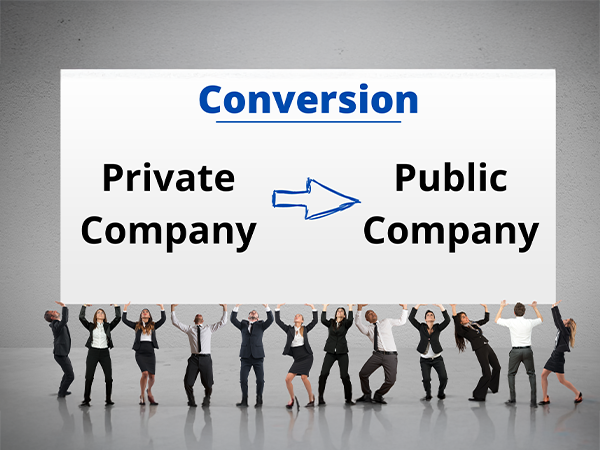Amidst rapidly evolving economic landscapes and the ongoing drive to strengthen business entities within both local and global markets, the topic of converting from a sole proprietorship to an LLC has garnered significant attention from entrepreneurs, investors, and regulatory bodies alike. This transition carries with it a multitude of legal, financial, regulatory, and administrative dimensions that demand a comprehensive understanding before making such a pivotal decision.
This article aims to explore converting from a sole proprietorship to an LLC from various perspectives, offering a balanced analysis of its advantages and disadvantages. Particular emphasis will be placed on the single-member LLC model as a modern legal solution that provides flexibility and legal structure for sole proprietors. Converting from a sole proprietorship to an LLC has become a strategic move for many, and understanding its implications is essential.
What is Converting from a Sole Proprietorship to an LLC?
Converting from a sole proprietorship to an LLC means changing the legal structure of a business from a sole proprietorship, owned by one individual, to a limited liability company operating under the corporate laws of a jurisdiction. This conversion does not necessarily alter the nature of the business activities, but it redefines the legal framework through which the business operates. Once completed, the LLC becomes an independent legal entity with its own financial and legal responsibilities, separate from its owner. The primary objectives behind converting from a sole proprietorship to an LLC include enhancing formal organization, facilitating expansion, improving financing opportunities, and bolstering credibility with government and private sector stakeholders. Businesses considering converting from a sole proprietorship to an LLC should examine the full spectrum of potential outcomes.
Section One: Disadvantages of Converting from a Sole Proprietorship to an LLC
Despite its apparent appeal, converting from a sole proprietorship to an LLC may involve several challenges and drawbacks worth noting:
- Administrative Costs and Regulatory Fees Converting from a sole proprietorship to an LLC comes with additional financial burdens, including registration fees, legal consultancy costs, accountant fees, and annual financial and tax disclosure requirements. Entrepreneurs may find these costs significant, especially in the early stages of the transition. However, these are standard considerations when converting from a sole proprietorship to an LLC.
- Complex Legal Procedures The legal procedures for converting from a sole proprietorship to an LLC are often more complex than anticipated. They involve drafting an operating agreement, registering the company with relevant authorities, appointing a certified accountant, and establishing robust accounting systems—all of which require legal and administrative expertise. These steps are crucial when converting from a sole proprietorship to an LLC to ensure full compliance.
- Loss of Full Control When converting from a sole proprietorship to an LLC that includes multiple members, the original business owner may need to relinquish some degree of decision-making authority to partners or a board of directors. This shift might not align with the leadership style of some entrepreneurs accustomed to full autonomy, especially those new to converting from a sole proprietorship to an LLC.
- Compliance Burden LLCs are subject to heightened regulatory scrutiny compared to sole proprietorships. They must adhere to timely financial reporting, disclose expenses and revenues, and maintain a certain level of transparency—duties that can become burdensome for small business owners. This is an essential consideration in converting from a sole proprietorship to an LLC.
- Tax Implications. In certain cases, converting from a sole proprietorship to an LLC may increase the tax burden, particularly if corporate tax rates exceed those applicable to individual business income. This could reduce net profits if not carefully planned. Tax strategies should be assessed when converting from a sole proprietorship to an LLC.
Section Two: Benefits of Converting from a Sole Proprietorship to an LLC
Despite the challenges, the benefits of converting from a sole proprietorship to an LLC often outweigh the disadvantages. Here are the most prominent advantages:
- Enhanced Credibility Converting from a sole proprietorship to an LLC strengthens the business’s image among clients, suppliers, and investors. LLCs are viewed as formal entities with clear legal obligations and structured management, fostering trust and legitimacy. Businesses report greater recognition after converting from a sole proprietorship to an LLC.
- Limited Personal Liability When converting from a sole proprietorship to an LLC, especially a limited liability company, the owner’s assets are protected from business debts and liabilities. This separation of financial responsibilities minimizes personal legal exposure and is a leading reason for converting from a sole proprietorship to an LLC.
- Growth and Investment Opportunities LLCs are generally more appealing to investors as they allow for ownership through shares or membership interests. Financial institutions also prefer lending to structured companies due to their organized financial documentation. These benefits are magnified by converting from a sole proprietorship to an LLC.
- Business Continuity Converting from a sole proprietorship to an LLC ensures business continuity even if the owner dies or exits the company. The entity remains operational per its articles of organization and internal governance policies. Many see converting from a sole proprietorship to an LLC as a succession planning tool.
- Better Access to Contracts, Government entities and major corporations often avoid sole proprietorships in favor of LLCs due to legal clarity and structural transparency. Converting from a sole proprietorship to an LLC increases eligibility for larger contracts and tenders. This is a key market advantage of converting from a sole proprietorship to an LLC.
Section Three: Single-Member LLC
Conversion A modern legal innovation in many jurisdictions is the option of converting from a sole proprietorship to a single-member LLC, a structure offering legal advantages while maintaining owner control.
- What is a Single-Member LLC? A single-member LLC is a legal entity created and owned by one individual or entity, enjoying the benefits of a separate legal personality and financial independence. Despite having one owner, it is still recognized as an LLC under the law. It serves as an ideal format for converting from a sole proprietorship to an LLC without complexity.
- Advantages of Converting from a Sole Proprietorship to a Single-Member LLC
- Financial Separation: The owner’s finances are legally separated from the business, which is a core benefit of converting from a sole proprietorship to an LLC.
- Administrative Flexibility: Full control remains with the owner, without the need for partner approval—one reason many choose converting from a sole proprietorship to an LLC.
- Growth Potential: This format can evolve into a multi-member LLC or a corporation.
- Simpler Processes: Converting from a sole proprietorship to a single-member LLC involves fewer legal hurdles than other structures.
- When to Opt for a Single-Member LLC This path is recommended in the following cases:
- If the business owner seeks personal financial protection by converting from a sole proprietorship to an LLC.
- If future funding or partnership is planned, converting from a sole proprietorship to an LLC offers structural readiness.
- If government or corporate clients require formal business structures, converting from a sole proprietorship to an LLC is often mandatory.
Regional Market Trends in LLC Conversions
Across the region, converting from a sole proprietorship to an LLC has become a strategic necessity rather than just a regulatory option. With digital economies and globalization rising, sole proprietors increasingly opt for conversion to remain competitive. Governmental support has simplified this process, allowing most applications to be submitted online. In this evolving market, converting from a sole proprietorship to an LLC is no longer optional—it is essential.
Real-world data indicates that over 60% of businesses that completed converting from a sole proprietorship to an LLC reported increased revenue within the first two years, affirming the tangible benefits of the shift.
Sada Law Firm: Your Trusted Ally in Converting from a Sole Proprietorship to an LLC
In today’s growing trend of converting from a sole proprietorship to an LLC, Sada Law Firm stands out as a reliable legal partner. Sada specializes in business transitions and provides end-to-end services including legal consulting, documentation, and official registration. Their unique blend of legal precision and market insight makes them the go-to advisors for entrepreneurs seeking secure and strategic conversions. Many clients trust Sada when converting from a sole proprietorship to an LLC.
Conclusion:
Converting from a sole proprietorship to an LLC is a pivotal step with far-reaching legal, financial, and operational implications. Despite the initial hurdles, the long-term advantages, including legal protection and growth opportunities, make this transition highly worthwhile. Single-member LLCs offer a streamlined path that balances simplicity with professionalism.
We strongly recommend that business owners considering converting from a sole proprietorship to an LLC seek guidance from legal and accounting professionals to ensure a smooth and compliant transition. In an increasingly competitive economic landscape, forming a legally sound and flexible entity is the key to sustainable growth and success. Converting from a sole proprietorship to an LLC is more than a change—it’s a strategic evolution.






